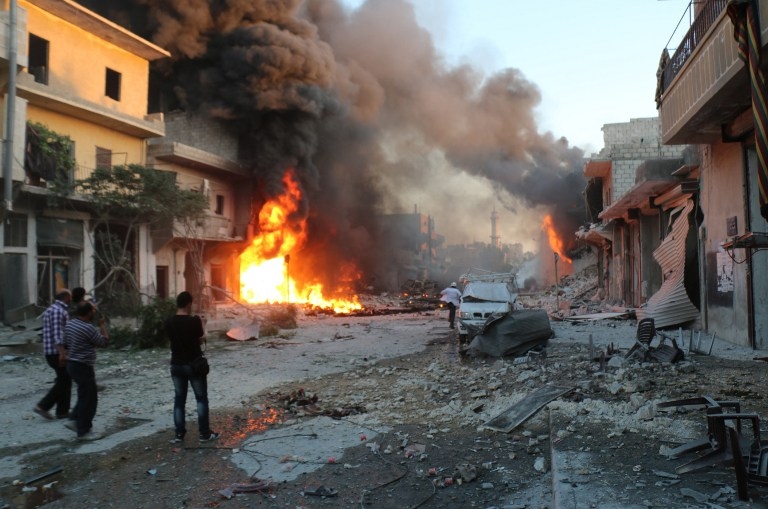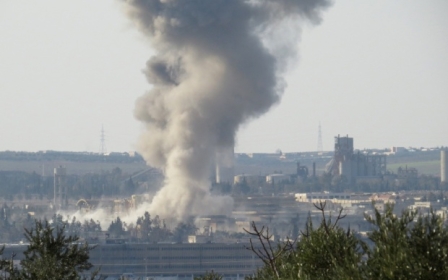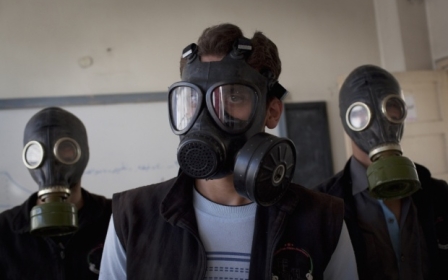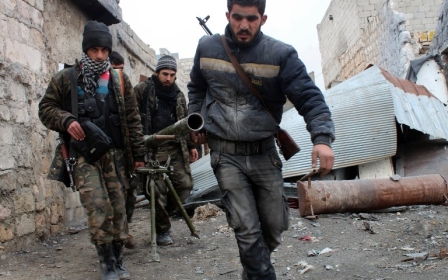China, Russia veto UN attempt to refer Syria to ICC

China and Russia on Thursday vetoed a draft UN Security Council resolution to refer Syria to the International Criminal Court for crimes committed by both sides in the three-year civil war.
Western powers pressed for the resolution in the face of mounting atrocities in Syria, including chemical attacks, systematic torture, barrel bombings and blocked aid access.
It was the fourth time China and Russia have blocked Western resolutions on the conflict, paralysing Security Council efforts to end a war estimated to have killed more than 160,000 people.
The 13 other members of the Security Council voted in favour and Western powers rounded on China and Russia for protecting not just the Syrian regime but also opposition "terrorist groups."
"Our grandchildren will ask us years from now how we could have failed to bring justice to people living in hell on earth," said US ambassador Samantha Power.
New MEE newsletter: Jerusalem Dispatch
Sign up to get the latest insights and analysis on Israel-Palestine, alongside Turkey Unpacked and other MEE newsletters
"The victims of [Syrian President Bashar al-Assad] regime's industrial killing machine and the victims of terrorist attacks deserve more than to have more dead counted," she added.
Moscow is Syrian President Bashar al-Assad's closest ally, and has provided him with diplomatic cover, weapons and funding throughout the crisis.
Beijing generally aligns with the Russian position.
"It is disgraceful that they have yet again vetoed the Security Council's efforts to take action on human rights violations in Syria," said British ambassador Mark Lyall Grant.
The text, drawn up by France, was co-sponsored by 60 countries, including members of the European Union, Japan, South Korea and several African states.
Syria is not a signatory to the International Criminal Court so only the Security Council can decide whether to refer war crimes or crimes against humanity on its territory to the court.
It did the same for Darfur in 2005 and Libya in 2011.
Western powers said they would continue to document atrocities and press for justice in the face of atrocities.
Writing in The Wall Street Journal on Thursday, French Foreign Minister Laurent Fabius said the Security Council "must unite."
"Holding the perpetrators of war crimes and crimes against humanity accountable for their actions is a way of obtaining justice for the victims.
"It is also a deterrent to those who continue to commit such actions. Sooner or later, they will be judged," he wrote.
The draft resolution denounced atrocities by government forces, by pro-government militias and by rebels fighting the regime.
Jan Eliasson, deputy secretary general of the United Nations, told the Security Council before the vote that the chamber's more than three years of disagreement was deeply damaging.
"If members of the council continue to disagree, the credibility of this body and the entire organisation will continue to suffer," he said in a short speech before the vote.
He said Syrians have a "fundamental right to justice" and said "accountability will help prevent further atrocities" on both sides of the conflict.
But the Russian veto was seen as all but certain.
Russian ambassador Vitaly Churkin on Wednesday dismissed the French initiative as a "publicity stunt" that would undermine efforts to find a political solution to the conflict in Syria.
The resolution will have "a detrimental effect unfortunately on our joint efforts in trying to resolve politically the crisis in Syria, but what will come will come," he added.
Peace talks have been locked in stalemate since February and international mediator Lakhdar Brahimi has announced his resignation, effective 31 May.
Western diplomats say China is embarrassed but was reluctant to oppose Russia again after abstaining from a resolution denouncing the separatist referendum in Crimea in March.
Middle East Eye delivers independent and unrivalled coverage and analysis of the Middle East, North Africa and beyond. To learn more about republishing this content and the associated fees, please fill out this form. More about MEE can be found here.




